Cooking Salts - Quick Facts
Quick Facts About Cooking Salts:
Although a flavor additive, Salt is not a spice. It is a mineral. Most sodium is consumed in the form of sodium chloride which is the bulk of your common cooking and at-the-table salts. Since other forms of sodium are also found in pre-packaged and processed foods, you have to account for all kinds of salt and sodium.
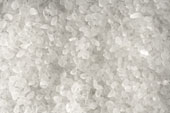
Strive to have less than 2,300 milligrams of sodium a day (about 1 teaspoon). This includes all forms of sodium and salt (what’s in processed foods, added during cooking, and used at the table).
The two primary, and oldest, methods for producing salt is solar evaporation and rock mining.
In the oldest, the sun evaporates sea water that has been ushered into shallow ponds; afterwards, the salt is harvested and is marketed as Sea Salt. Sea salts can differ in both flavor and color because they usually contain some trace minerals and elements that are found in their water sources.
The second oldest method involves harvesting product from salt veins and domes deep in the earth. These salts include products like Himalayan Pink Salt.
A third method involves evaporation, steam heat, and vacuum pans to produce a fine-textured, additive-free salt. When iodine, a necessary trace nutrient naturally present in some other foods, and an anti-clumping agents are added, the final product is marketed as common Table Salt.
Processed and pre-packaged foods account for most of the sodium and salt consumed.
Check food labels! Sodium can be found in some products in which you least expect to find it (e.g., cold medicines).
Gourmet salts are still salt, no matter if they are believed to be "healthier" than table salt. They must be included in the tally of your daily sodium consumption.
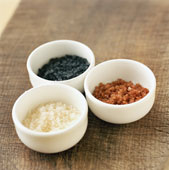
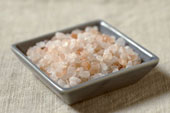
Lowering salt in your diet can lower blood pressure.
Which salt should be used when? There was once a generally-accepted guideline that:
Flake Kosher Salt should be used for cooking and making brines
Sea Salt should be used at the table and as a finishing flavor additive
Table Salt should be used for baking (its granules are uniform in size and shape, thus they won’t alter the outcome of baked goods), and as a general purpose flavor additive
Flake Kosher Salt has less sodium and weight than other salts. A basic conversion is to substitute 1 tablespoon + ¾ teaspoon for each tablespoon of common salt.
Check Here for Morton® Salt’s Guide
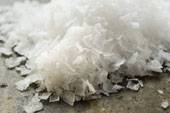
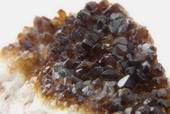
Some Names of Culinary Salts:
Celtic Salt
Fleur de Sel
Hawaiian Black Salt
Hawaiian Red Salt
Kosher Salt
Morton® Salt
Sel Gris
Smoked Salt
Interesting Salt Links:
Food Additives Resources
Got questions?
Get answers about food additives and ingredients.
Food and Drug Administration
fda.gov
Center for Food Safety and Applied Nutrition (CFSAN)
fda.gov/Food
5100 Paint Branch Parkway
College Park, MD 20740-3835
Color Additives Information
fda.gov Color Additives
Toll free information line: 1-888-SAFEFOOD (723-3366)
U.S. Department of Agriculture
Food Safety and Inspection Service
fsis.usda.gov
Food Safety Education Staff
1400 Independence Ave., SW
Room 2932-S
Washington, DC 20250-3700
Food Additives Information
usda.gov Fact Sheets on Additives
Meat and Poultry Hotline:
1-800-535-4555
TTY: 1-800-256-7072
Email: fsis@usda.gov
Food and Nutrition Information Center (FNIC)
USDA Ag Research Service
10301 Baltimore Ave.
Beltsville, MD 20705-2351
301-504-5719
Email: fnic@nal.usda.gov
International Food Information Council Foundation (IFIC)
IFIC
1100 Connecticut Ave., NW Suite 430
Washington, DC 20036
202-296-6540
Email: foodinfo@ific.org
American Dietetic Association (ADA)
ADA
216 W. Jackson Blvd. Chicago, IL 60606-6995
312-899-0040
The Food Allergy and Anaphylaxis Network (FAAN)
FAAN
11781 Lee Jackson Hwy. Suite 160 Fairfax, VA 22033 1-800-929-4040
Email: faan@foodallergy.org
Institute of Food Technologists (IFT)
IFT
525 West Van Buren
Suite 1000
Chicago, IL 60607
1-800-IFT-FOOD (438-3663)





New! Comments
Have something to say about what you just read? Leave me a comment in the box below.